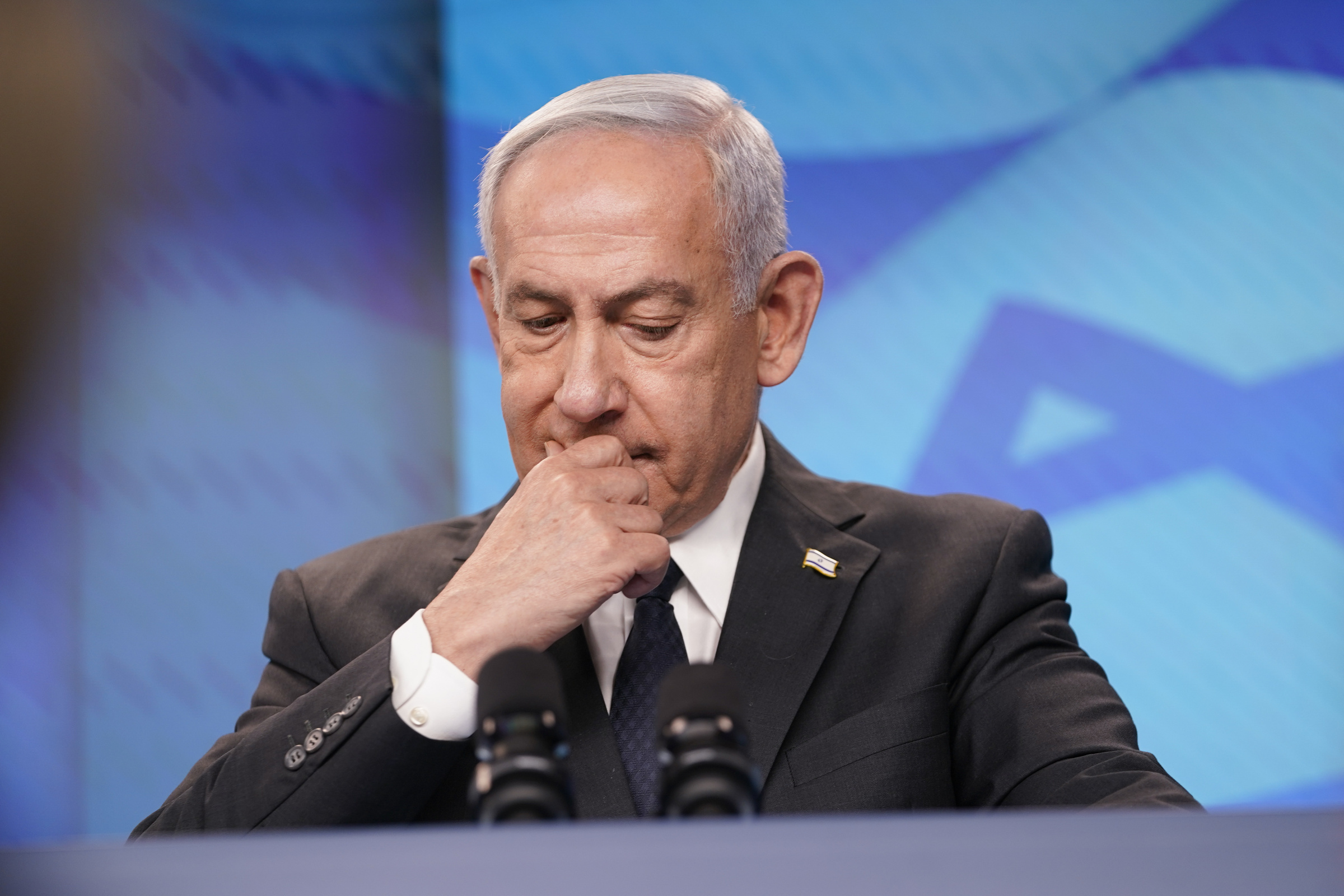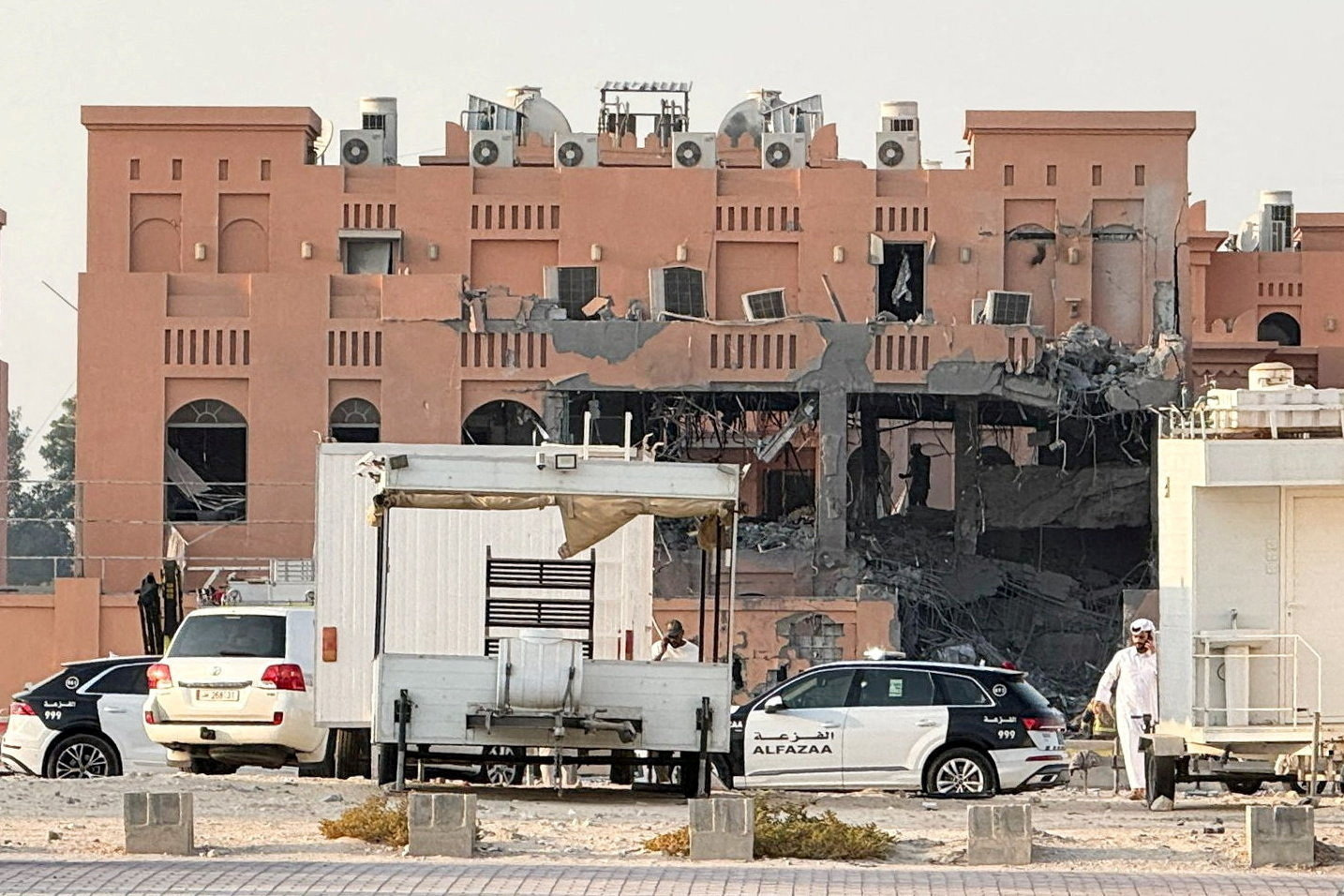On 9/9, the Israel Defense Forces (IDF) deployed 15 advanced fighter jets to the Red Sea and launched 10 ballistic missiles at the Hamas political leadership's offices in Doha, Qatar. Israel's plan in this unprecedented attack was to eliminate Hamas's top leaders during a meeting about a Gaza peace proposal presented by US President Donald Trump.
Five low-ranking Hamas members and a Qatari security officer were killed. However, the group's political leaders escaped death by leaving the meeting room to pray just as the missiles struck. “No senior Hamas leaders were killed. It’s possible some of the victims suffered from shock,” an Israeli intelligence official said.
Prime Minister Benjamin Netanyahu stated the strike aimed to remove hardline Hamas leaders, simplifying ceasefire and hostage negotiations. However, the expensive missile attack failed entirely and jeopardized the peace process.
“Hamas negotiators ‘disappeared’, while Qatar suspended all mediation efforts due to outrage at Israel,” noted Barak Ravid, an analyst at Axios.
 |
Israeli Prime Minister Benjamin Netanyahu at a press conference in Jerusalem on 15/9. Photo: AP |
Israeli Prime Minister Benjamin Netanyahu at a press conference in Jerusalem on 15/9. Photo: AP
A senior Israeli official also told Axios that before the strike, Hamas leaders had agreed to “move toward a deal” and believed a breakthrough was possible in the coming days. However, the Israeli missiles shattered any progress.
The Israeli security and political establishment largely agrees that the operation backfired, costing Israel politically and militarily. Ksenia Svetlova, a former member of the Knesset (Israeli parliament), wrote in the Times of Israel that the failed assassination attempt weakened Tel Aviv's position in peace talks and eroded Israel's international standing.
Professor Elie Podeh, a Middle East studies expert at the Hebrew University of Israel, called the attack a strategic blunder. He argued that even if it had succeeded, the cost to Israel would have outweighed any benefits.
According to Podeh, the strike damaged years of Israeli efforts to build trust with Qatar and embarrassed US President Donald Trump, a key ally of both sides. The attack also cast doubt on US security commitments to Middle Eastern oil powers.
Qatar, a wealthy Gulf nation, hosts the largest US military base in the Middle East and maintains unofficial relations with Israel. Qatar has also played a vital mediating role between Tel Aviv and Hamas for months, aiming to end the Gaza conflict.
Experts believe Netanyahu wanted to pressure Qatar to influence Hamas, but the attack sparked solidarity with Doha and further alienated Israel.
Dozens of Arab and Western leaders condemned Israel's actions and expressed support for Qatar. Many Arab and Muslim leaders also held a summit in Doha on 15/9, issuing a joint statement expressing skepticism about establishing or maintaining relations with Israel, though failing to agree on strong action against Tel Aviv.
Egyptian President Abdul Fattah al-Sisi directly addressed the Israeli people, warning Netanyahu's government that it was endangering the peace agreement between their two countries.
President Trump complained he wasn't informed of the strike beforehand, although Israeli officials told Axios that Trump spoke with Netanyahu an hour before the Qatar operation began.
The anger in Qatar and the region following the attack also increased pressure on the White House. Many of Trump's advisors were furious that Israel carried out the strike without consulting the US. A US official said some within the administration advised Israel to find ways to repair the damage caused by the attack.
Germany, a longtime ally of Israel, criticized the strike as “unacceptable” and a violation of Qatar's sovereignty. India, which supports Israel, also warned of escalation risks and expressed “deep concern.”
Israeli media highlighted Qatari Emir Tamim bin Hamad Al Thani's warm reception of Hungarian Prime Minister Viktor Orban, a staunch ally of Israel, as a symbol of Tel Aviv's increasing isolation.
During their meeting, Orban emphasized Hungary's support for Qatar's sovereignty after Israel's “treacherous attack,” saying the strike threatened regional stability and security, undermining international efforts to achieve peace through dialogue and respect for international law.
In Israel, opposition leader Yair Lapid accused Netanyahu's government of damaging Israel's international standing through “irresponsibility, incompetence, and arrogance.”
Commentator Sima Kadmon argued the operation was not only a military failure but also further eroded public trust in the Israeli government's motives in prolonging the conflict with Hamas. “For many hostage families, belief in a peace deal or hostage release no longer exists,” Kadmon wrote.
 |
A damaged building after the Israeli attack on Doha, Qatar on 9/9. Photo: Reuters |
A damaged building after the Israeli attack on Doha, Qatar on 9/9. Photo: Reuters
However, some experts believe that despite the costs, Netanyahu's government is unlikely to change course.
They suggest that despite strong condemnations, Middle Eastern countries may not alter their policies toward Israel, as reflected in the joint statement by Arab and Muslim leaders after the Doha summit on 15/9.
“Israel has crossed red line after red line, but nothing happens. Every time they cross a line, they come back and do it again,” said Rob Geist Pinfold, a lecturer in international security at King's College London.
In a press conference with US Senator Marco Rubio on 15/9, Netanyahu declared the Doha attack sent a strong message, one that Tel Aviv considered carefully. “We wanted to send a message to our enemies that they won’t be safe anywhere in the world,” he said.
Thanh Tam (Axios, Al Jazeera, Asharq Al-Awsat)












